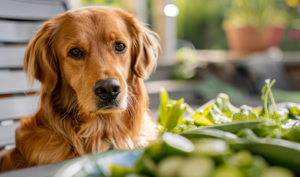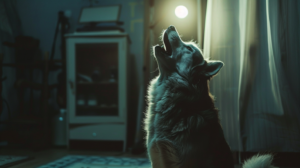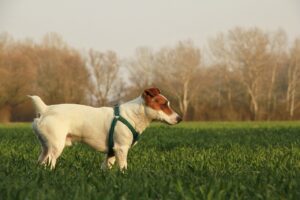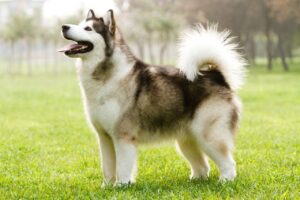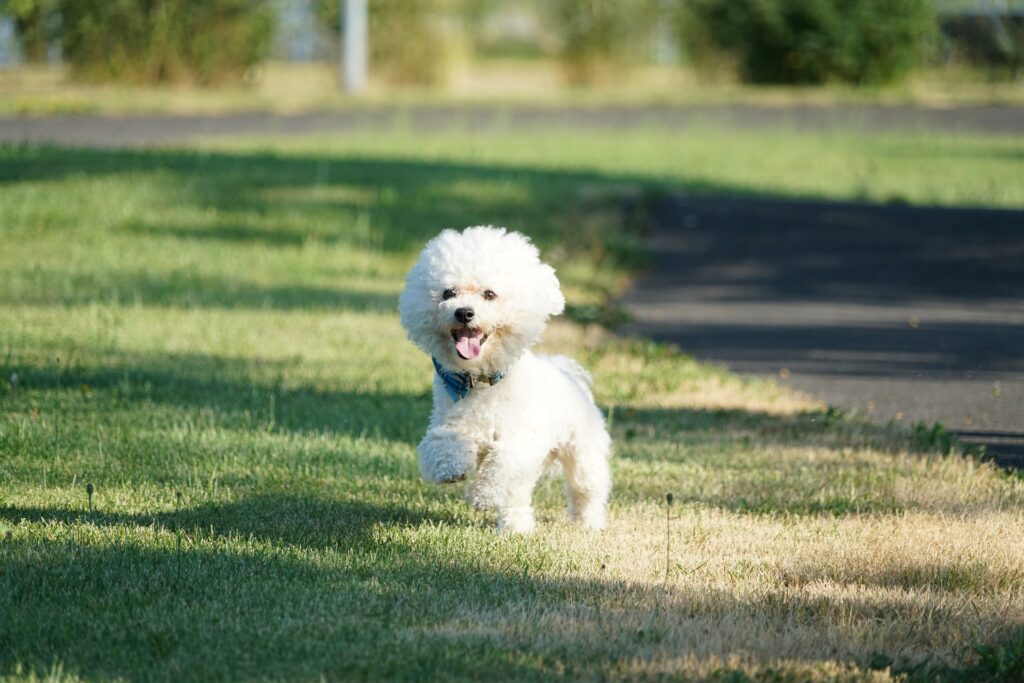
The Bichon Frise, a delightful little furball, embodies cheerfulness and affection. Their spirited nature, combined with their playful demeanor, makes them a joy to be around. From being the stars of circuses in bygone eras to becoming the heart of modern households, their intelligence and desire for attention have never waned. They bring both mischief and charm into your life in equal measure.
These dogs adapt well to various living conditions, compact in size but enormous in personality. Their gentle temperament is a universal fit, from interacting with children to mingling with other pets. These bundles of joy are always ready to go on long walks or play, keeping the atmosphere lively.
In this blog post, you’ll learn the financial aspects of Bichon Frise ownership, from initial costs to annual expenditures. An in-depth exploration of the variables that affect the price will be detailed, accompanied by a balanced discussion of the advantages and potential challenges of welcoming one of these charming canines into your home.
How Much Does a Bichon Frise Cost in the Philippines?
The price varies considerably depending on age, pedigree, and color. For instance, a purebred Bichon Frise can range anywhere between ₱20,000 to ₱50,000, as per the listings found on various local marketplaces.
However, it’s important to note that there are smaller versions, referred to as ‘Mini Bichon Frises,’ which are often priced higher due to their rarity and the growing demand for small dogs.
When considering breeds under the Bichon family, the Bichon Frise is just one member of this delightful group. Other breeds include the Maltese, the Bolognese, and the Havanese, each with unique charm and characteristics. While these breeds are similar to the Bichon Frise, their prices can differ based on popularity, availability, and breed-specific traits.
Factors Influencing the Price of a Bichon Frise
a. Breeder Reputation
A well-respected breeder renowned for maintaining high standards of care and breeding quality dogs will understandably charge more.
b. Pedigree
A puppy from a distinguished pedigree or an exceptional bloodline often commands higher prices due to their potential for showmanship or breeding.
c. Health Clearances
Health clearances, which prove that a dog has been tested for and cleared of certain breed-specific health conditions, can also impact the cost. These clearances ensure you get a healthy puppy, justifying a higher price tag.
d. Coat Quality
Their coat is one of its most distinctive features. Puppies with dense, curly, and primarily white coats may fetch a higher price.
e. Age
Young puppies are usually more expensive than older dogs due to their adaptability and training potential.
Understanding these factors will help you make more informed decisions about adding a fluffy friend to your family. While the price may seem steep, the initial price tag is just the beginning.

The Yearly Cost
When considering adding a new member to your family, understanding the yearly expenses is crucial. Let’s break down the cost of taking care of a Bichon Frise.
1. Food
The type of food and the brand significantly impact this expense. High-quality brands might cost around ₱3,200 per month, which adds up to ₱38,400 annually.
2. Veterinary Care
Routine vet visits are essential to keep your pup healthy. This could cost approximately ₱8,000 to ₱10,000 per year. Vaccinations, deworming, and other preventive treatments add to the expense.
3. Grooming
A well-groomed Bichon Frise is a sight to behold. Professional grooming services can cost anywhere from ₱500 to ₱1,500 per session. If you opt for monthly grooming, the yearly cost could range from ₱6,000 to ₱18,000.
4. Miscellaneous
Toys, treats, bedding, and other miscellaneous items can add another ₱5,000 to ₱10,000 to your annual budget.
Total Yearly Costs
Adding up these expenses, we’re looking at ₱57,400 to ₱76,400 per year. Remember that these are rough estimates, and actual costs may vary.
The First Year Expenses
| Expense | Cost |
| Bichon Frise’s Price | ₱20,000 to ₱50,000 |
| Food | ₱38,400 |
| Vet Care | ₱8,000 to ₱10,000 |
| Grooming | ₱6,000 to ₱18,000 |
| Miscellaneous | ₱5,000 to ₱10,000 |
| TOTAL | ₱77,400 to ₱126,400 |
Remember, owning a pet is a long-term investment. It’s not just about the cute fluffiness; it’s about the responsibility and commitment. The joy and companionship they bring, however, make every peso spent genuinely worth it.
Critical Questions for Your Breeder
Here’s a handy guide to the questions you should ask to find a responsible and reputable breeder.
i. Parental Pedigree and Certification
Ask about the puppy’s parents. Are they certified by the Philippine Canine Club, Inc. (PCCI)? Certification guarantees that the pup comes from a legitimate lineage, ensuring the authenticity of the breed.
ii. Health Tests and Certificates
Enquire about health testing. Bichon Frises are prone to certain genetic conditions like hip dysplasia and allergies. The breeder should have conducted relevant health tests on both parents and provided certificates to prove the same.
iii. Meet the Litter
Request to meet the entire litter. Observing the litter can give you insights into their socialization and overall health. Also, they are sociable dogs; overly shy or aggressive puppies may not be well-socialized.
iv. Breeding Practices
Inquire about the breeder’s practices. How many litters do they produce a year? A breeder producing multiple litters might be more interested in profit than the welfare of the dogs.
v. Living Conditions
Ask about the living conditions. Bichon Frises require clean, comfortable environments to thrive. A visit to the breeding facility can show how well the breeder cares for their dogs.
vi. Post-Purchase Support
Ask if the breeder provides post-purchase support. A good breeder will be happy to answer any questions and provide guidance even after you’ve taken your pup home.
By asking these questions, you can ensure that you get a healthy, well-bred Bichon Frise from a breeder who truly cares for their dogs. Remember, it’s about finding a companion who’ll be with you for many years.
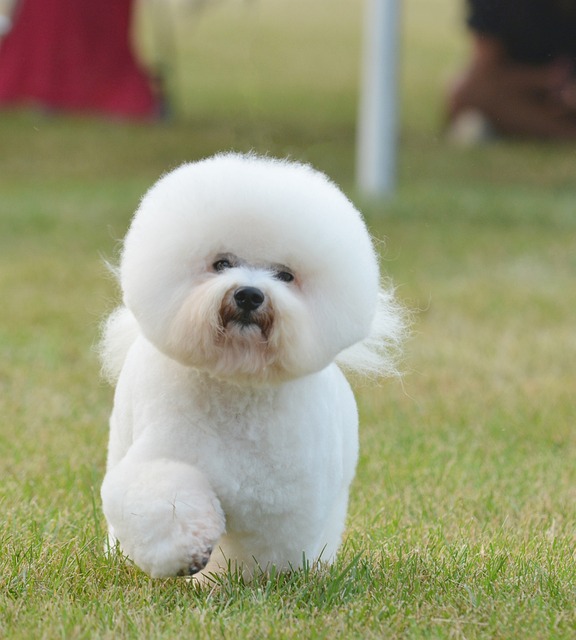
Weighing the Pros and Cons of Owning a Bichon Frise
Living with a pet is a joyous experience filled with love, companionship, and occasional challenges. There are unique pros and cons for this breed.
The Upside
1. Low Exercise Needs
Bichon Frises are active but do not require extensive exercise. This characteristic makes them perfect for busy owners or those living in smaller spaces.
2. Affectionate Companions
These dogs are known for their friendly nature. Their affectionate demeanor makes them superb companions, spreading warmth and love wherever they go.
3. Low-Shedding Coat
They possess a low-shedding coat, making them ideal for owners with allergies or who prefer a cleaner living environment.
4. Sociable with Other Pets
These dogs are generally good with other pets, making them an excellent choice for households with multiple furry friends.
The Flip Side
1. Regular Grooming
Their beautiful white coats require regular grooming. Owners should be prepared for monthly grooming sessions to keep their Bichon Frise looking its best.
2. Need for Human Company
They crave human company. Leaving them alone for extended periods can lead to separation anxiety.
3. Climate Sensitivity
Being a breed originating from the Mediterranean region, they may find adapting to the tropical climate challenging. They may be susceptible to heat strokes and skin issues if not correctly cared for.
4. Training Needs
While intelligent, these dogs can sometimes be stubborn during training. Patience and consistency are key when teaching them new tricks or manners.
Owning a Bichon Frise comes with its unique joys and challenges. Understanding these pros and cons can help potential owners make an informed decision, ensuring a harmonious and loving relationship with their new furry friend.

